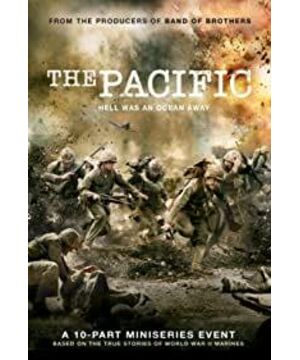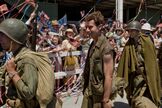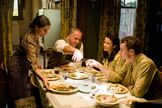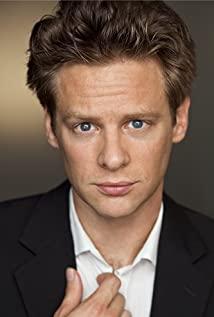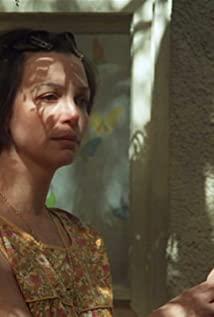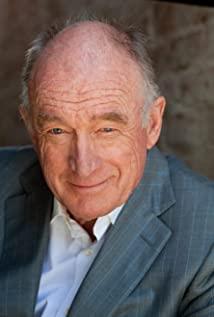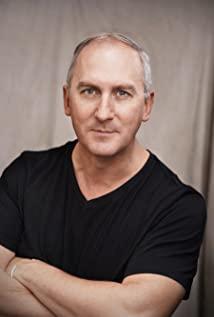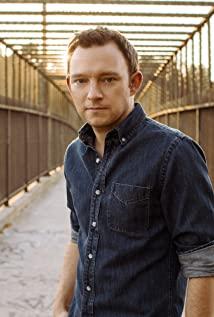I almost never watch war movies. From the beginning, I could only watch one episode a day and need to pause from time to time. Later, I watched two or three episodes in a row. The intestines that flowed out of the body, the skull that was half blown off, even overgrown. The skeletons of maggots basically don't make me sick anymore; those comrades who were shot and fell to the ground under the eyes of the protagonist, the beloved company commander who was killed by a sniper, the one who reluctantly looked at his comrades before dying The protagonist, also can not draw my tears.
As a result, the last episode, or let me fall.
Maybe it should be like this - the war in the first nine episodes, the tropical jungle, the separation of life and death, love and friendship, all paved the way for the return journey in the last episode. No matter how fierce the war is, it is not the normal state of life. In a sense, the biggest test is not surviving on the battlefield, but surviving after the war. So, watching Lena take out John's medal and hand it to his father, and watching Eugene cry and say "I'm sorry I can't do it" to his father, I burst into tears. I think that's probably the scary thing about war - it mercilessly throws the lives of everyone involved in it out of the norm, and inadvertently throws the survivors back into the norm. Just like the words Lekki said when he got home and got off the taxi: "God, nothing has changed." However, it has long been vicissitudes.
Among the three protagonists, the one I feel the most is Eugene Sledge. The literary youth Lekki and the fighting hero Baslon did not resonate with me a lot, but Eugene was the only one who had a deep connection with me.
His growth trajectory is clear, with every turning point clearly visible. Because the heart tremolo couldn't get his father's permission to sign up for the army, he was unhappy when he sent his best friend Sid to the battlefield, and he said to his father "I'm going to enlist in the army tomorrow, I don't need your permission", in the boot camp The jerky, confused and uncomfortable when he first arrived on the battlefield... Such a person, pure and persistent, idealistic, is undoubtedly too cruel to him on the battlefield. On the beach on Bouvier Island, Eugene asks Sid what war was like. Sid was silent, then gave Eugene a hesitant answer. Good friends who were once alike, standing on the same beach, were completely different because of the war - Eugene was neatly dressed, clean, restrained, and immature; Sid was open-minded, ragged, rough, and vicissitudes. Needless to say, Eugene would soon become like Sid, due to the war.
The war started, and Eugene began to experience everything that Sid had to say before - the sun and rain in the tropical jungle, the dense bullets and crazy bombing, the corpses and broken arms and limbs everywhere on the battlefield, the death and madness of his comrades, The Japanese vowed not to surrender... His eyes changed from clear and frightened to indifferent and cold, from just holding a gun and bowing his head and following the soldiers in front of him to calmly commanding the artillery to hit the target, never smoking From praying in the Bible to smoking a pipe and swearing, from being persuaded "you can't always take it to your heart" to exhorting others to "you can't always take your heart", from asking "why can't they surrender" to the commander Roaring "Aren't we here to fucking kill the Japanese?", the acceleration and distortion of human growth by war is concentrated in Eugene. Even hearing babies cry from the bombarded house on Okinawa, Eugene said to Schnave with a deadpan expression that maybe it was a trap.
However, there are always some things that war cannot obliterate. Eugene is Eugene after all. On the battlefield where he was overwhelmed with fear, he would turn his head to pick up the fallen Schnauf and drag him onward; he would hug his collapsing and crying comrades and comfort him softly "you'll be fine"; he He would cry when the company commander's body passed by; he would write and draw thoughtfully between battles... In the house where the baby's cry was heard in Okinawa, he did not beg to die for the pain of the belly being blown to pieces The Okinawan woman pulled the trigger, but gently hugged her. At that moment, his eyes were so soft.
Such Eugene, the post-war psychological reconstruction is undoubtedly more difficult than others. From now on, I don't wear military uniforms, I don't pick girls, I don't look for jobs, I have nothing to do, and I ask myself why I can come back unscathed instead of others. Eugene's father once said to him: "For those soldiers who come back from the battlefield, the most difficult thing to heal is not the physical wound, but the broken heart. I don't want to see you like that. I can't see it in your eyes. To love, vitality, and life." Fortunately, he was not taken for granted, later became a Ph.D., taught at a university, had a family, kept in touch with his comrades, and wrote war memoirs.
"God only gives us trials that we can overcome". The so-called put to death and then live. Over the test, what a brilliant life they have.
The actor's performance is very expressive. The war scenes are very realistic. The soundtrack is great, I love the opening theme melody and charcoal drawing. I am very satisfied with this drama as the beginning of my war movies.
View more about The Pacific reviews


